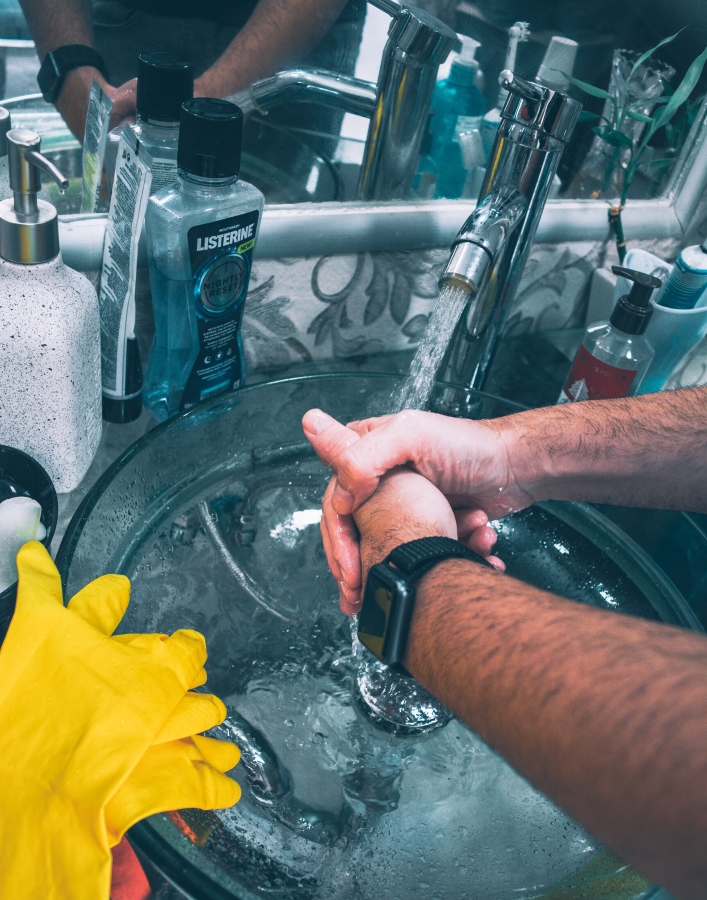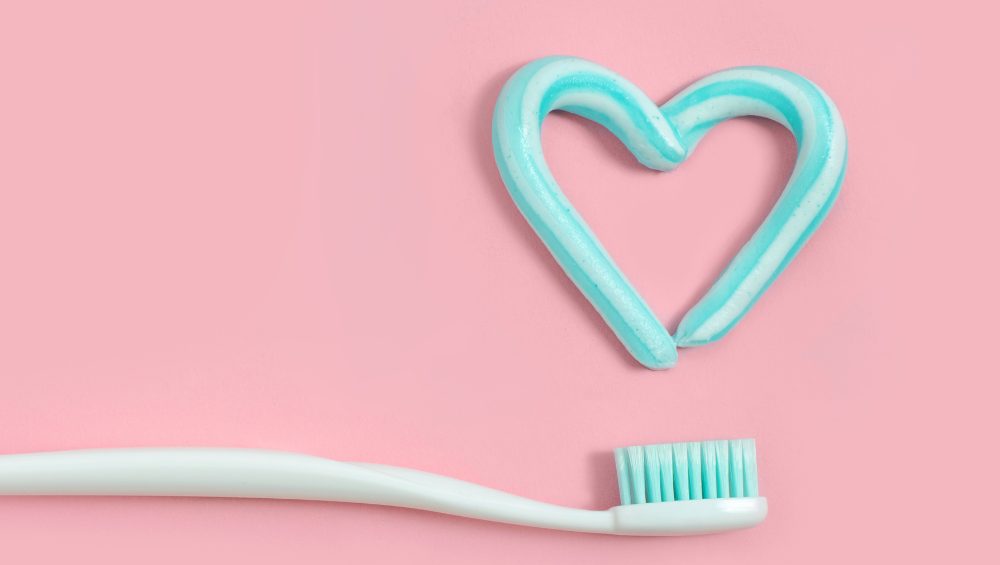
What Causes Tongue Tie?
October 7, 2020
Smiling Your Best: When to Know If You’re Ready for Veneers
October 8, 2020Sometimes patients ask – what are the different types of mouthwash? The next question usually is, “which are best?” The answer depends on your needs and preferences.
This article is not a substitute for professional dental advice. Please see your dental health provider discuss any dental health issues or concerns. We hope this article empowers you to make healthy decisions for you and your family.
Some people use mouthwash for cosmetic reasons such as whitening their teeth or freshening their breath. Others use mouthwash for more therapeutic reasons such as cavity prevention or to fight gum disease. Some therapeutic mouthwashes are prescription-only while others are available to purchase over-the-counter.
What are the Different Types of Mouthwash and Which are Best?
The best mouthwash will vary depending on why you want to use one. Common reasons why people use mouthwash:
- Fighting plaque buildup
- Preventing or treating bad breath
- Relieving dry mouth
- Fight gum disease and gingivitis
- Fight cavities
- Tooth whitening
What to look for in a mouthwash
The most important criteria when shopping for a mouthwash is the American Dental Association (ADA) Seal of Acceptance. The seal means the manufacturer tested the product to prove effectiveness. Although other mouthwash products with the same ingredients may provide similar benefits, the ADA Seal of Acceptance ensures quality. Surprisingly some well-known brands do not have the seal.
Ingredients are also among the most crucial criteria to look for when choosing a mouthwash for a mouth rinse. Talk with your dentist or dental hygienist about which ingredients you should look for when shopping. Depending on the purpose of the mouthwash, you want to choose the most effective ingredients for your needs.
Popular and effective Mouthwash ingredients include:
- Fluoride: fluoride strengthens tooth enamel and helps fight tooth decay. This is why we always encourage patients to use a toothpaste containing fluoride once they are old enough to know not to swallow their toothpaste.
- Chlorhexidine: Chlorhexidine helps control gingivitis and also helps reduce plaque.
- Cetylpyridinium chloride: This ingredient kills bacteria that causes bad breath.
- Carbamide peroxide or hydrogen peroxide: These are tooth whiteners.
- Essential oils: Sometimes, mouthwash products contain essential oils called my antibacterial properties or flavor. Some of the popular essential oils found in mouthwash include peppermint, thyme, eucalyptus, and menthol.
A Couple of Things to Watch Out For With Mouthwash Use
Be aware that some mouthwashes can discolor or stain the teeth. Many types of mouthwash that effectively treat gingivitis and plaque can cause temporary surface-level tooth discoloration. Some users find they turn their teeth brown. These mouthwashes contain ingredients that kill germs in the mouth, and sometimes these germs collect on the top surface, creating the appearance of brown discoloration.
Chlorhexidine is one ingredient that can cause this type of tooth staining with ongoing use. Some people notice the staining develops after ten days of usage, especially if they consume foods with certain ingredients like tannins that are found in certain sodas, tea, red wine, and coffee.
If this is a concern, talk with your dentist about which mouthwash products they recommend for your needs. Also, discuss any efforts you can make to prevent or remove the stains. Usually, discoloration from mouthwash is preventable and treatable. Many patients find that using a tartar control or whitening toothpaste, an electric toothbrush, and flossing takes care of the issue. In addition, visiting your dentist regularly for professional cleaning removes built-up tartar and surface-level stains.
Also, please note that for safety reasons, children Under the age of 6-years-old should not use mouthwash. Only children who are old enough to avoid swallowing mouthwash and to spit it out should use these products. Even then, be sure to look for a children’s mouthwash.
Some patients are sensitive to mouth rinses containing alcohol. They may experience a burning sensation while using the mouthwash, or they may experience dry mouth. If this applies to you, then look for an alcohol-free mouthwash or discuss other alternatives with your dentist.
What are the Different Types of Mouthwash Available?
Know what are the different types of mouthwash available in your local stores we recommend.
Recommended Mouthwashes:
Anything with Fluoride
Although a fluoride mouthwash does not remove plaque, it still helps protect your teeth from acids produced by plaque. It is not a substitute for flossing and brushing your teeth daily. But a fluoride mouthwash is a good supplement when fighting cavities. Be sure to talk with your dentist about whether a fluoride mouthwash is ideal for you or not. Fluoride helps strengthen tooth enamel and helps your teeth remineralize ourselves.
Please do not give a fluoride mouthwash to Children younger than six years old because they are more likely to swallow the mouthwash.
Be sure and talk with your dentist about whether a fluoride mouthwash is right for you and your family. Many communities add fluoride to the drinking water. If you happen to live in a rural area where you receive your water from a well or spring, then you may have a special need for a fluoride mouthwash to supplement your fluoride toothpaste.
ACT Mouth Rinses and Mouthwash
We recommend ACT mouthwash because this brand contains the most fluoride.
Listerine Total Care
Listerine Total Care prevents cavities, remineralizes tooth enamel, strengthens teeth, and kills the germs that cause bad breath. However, some users are sensitive to the alcohol content and find that it burns a little.
Stannous Fluoride Mouthwash
Stannous fluoride is a naturally occurring mineral that helps fight gingivitis, tooth decay and reduces cavities and tooth sensitivity. Unfortunately, users sometimes experience teeth staining when they use a stannous fluoride mouthwash. In some cases, a dentist may prescribe it; in this case, be sure to carefully follow instructions and recommendations.
Sodium fluoride is one alternative to stannous fluoride. According to Crest, sodium fluoride helps prevent cavities, but it doesn’t have the same antibacterial agents as stannous fluoride. Be sure to talk with your dentist to get the right balance between protecting your teeth and keeping them bright and white. Generally, we don’t recommend them due to the staining factor. For this reason, we typically don’t recommend Crest Pro-Health either.
Listerine Agent Cool Blue Mouthwash
Listerine agent cool blue mouthwash is a fun option for children. This mouthwash temporarily stains the plaque on the user’s teeth to show where to brush and which spots they may have missed. This mouthwash helps children learn good brushing techniques. Kids enjoy the feeling of accomplishment they get from removing the blue dye from their teeth.
By now you should have a clear understanding of what are the different types of mouthwash available and which one is best for you.
Charlotte Area residents trust their oral health to Southview Dentistry, contact us if you live in the area and have questions about oral hygiene techniques and what are the different types of mouthwash you can use. Also, if it has been a while since you have had a professional dental cleaning and examination, give us a call.




